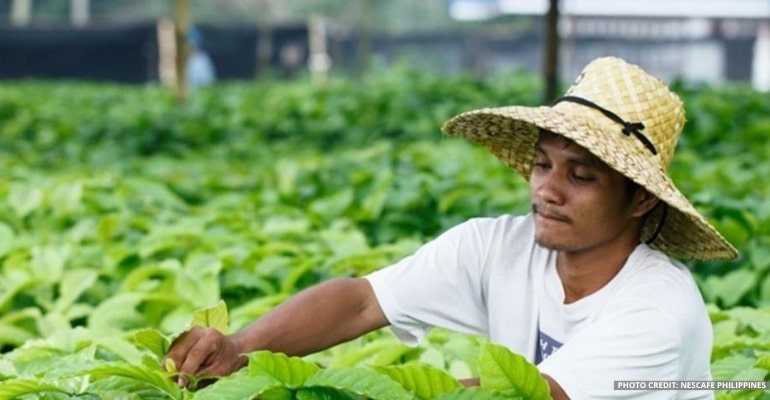DAVAO, PHILIPPINES — In 2021, around 1,500 small coffee farmers in Mindanao, the primary producer of Robusta coffee, increased their yield by approximately 64 percent and their income by 45 percent.
The increase came from completing the three years of Project Coffee+, under the NESCAFÉ Plan, launched by Nestlé Philippines, mainly attributed to the change in farm operations.
The agri-enterprise approach stems from applying learned skills in better farm planning and budgeting, seeking financial services, money management, and farm diversification via raising livestock and intercropping/multi-cropping,
The supply of Robusta coffee, 66 percent of local coffee production, lags considerably compared to the country’s demand.
To help with that, the Nescafé Plan, a long-term program, aims to increase the supply of beans by assisting farmers in increasing the productivity of coffee farming. Since 2019, several farmers from Sultan Kudarat and Bukidnon, 980 and 520, respectively, participated in intensive training to develop an “agripreneurial” mindset.
In a statement on Wednesday, Nestlé Philippines head Kais Marzouki said, “Along with the efforts of our partners and other stakeholders, the NESCAFÉ Plan aims to increase the capacity of farmers for regeneration and build a future through green coffee beans sourced from farmers adopting regenerative agriculture practices.”
The regenerative agriculture farming method enhances resources rather than depleting or outright destroying them, and its farming principles are based on rehabilitating and enhancing the farm ecosystem.
They do this by promoting biodiversity, maintaining and protecting the health of the soil and many more; all of this improves resilience and maintains the delicate balance of the environment.
Meanwhile, International NGO (non-government organization) addressing climate change, deforestation, social inequity, and systemic poverty Rainforest Alliance reported increased production. In addition, the NGO monitored, evaluated and assessed the project’s sustainability.
They reported that the regenerative farming practices of Project Coffee+ farmers, such as agroforestry, coffee tree rejuvenation and the application of organic matter, had a positive influence on their total harvest.
Kais Marzouki added, “As we move forward in our transition to regenerative food systems, we want to encourage consumers to be more mindful of how raw materials are grown and how products are made as they make purchase decisions.”
Project Coffee+ partnered with the German development agency GIZ (Gesellschaft für Internationale Zusammenarbeit), also known as the German Corporation for International Cooperation, to train smallholder coffee farmers in the gaps in the coffee value chain. –WhatALife!/Zed
Also read: Jollibee Chickenjoy wins as ‘best fried chicken in America’

Leave a Reply